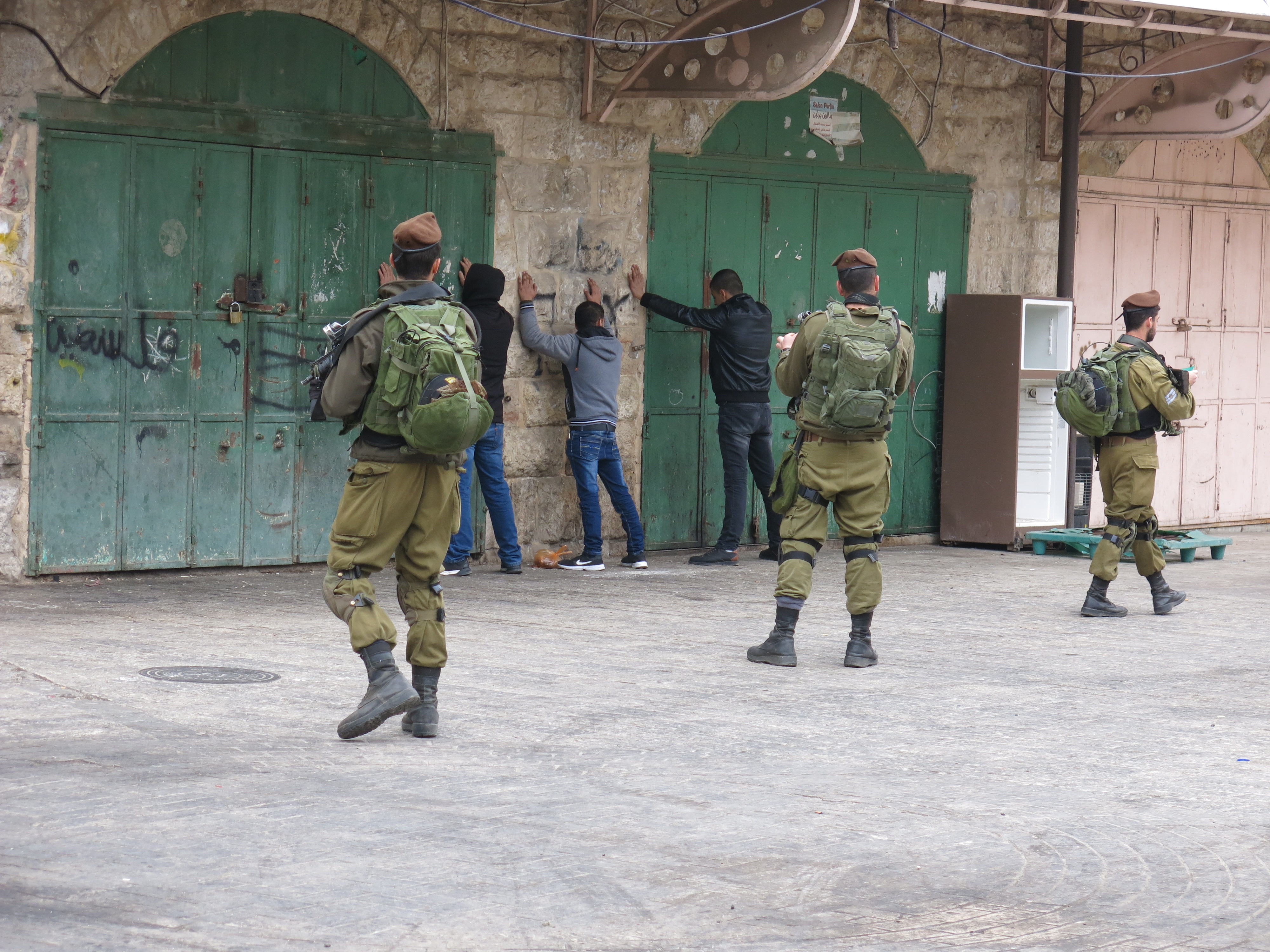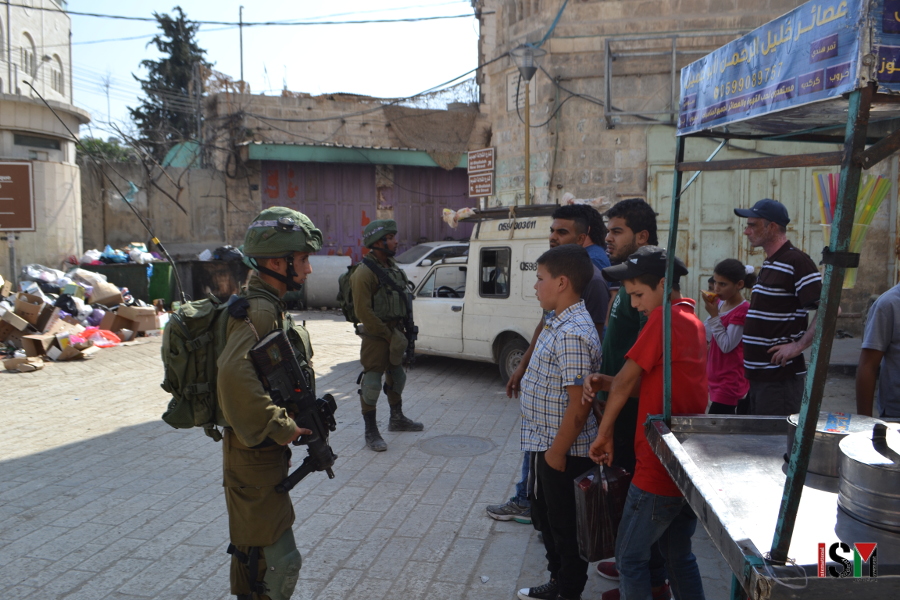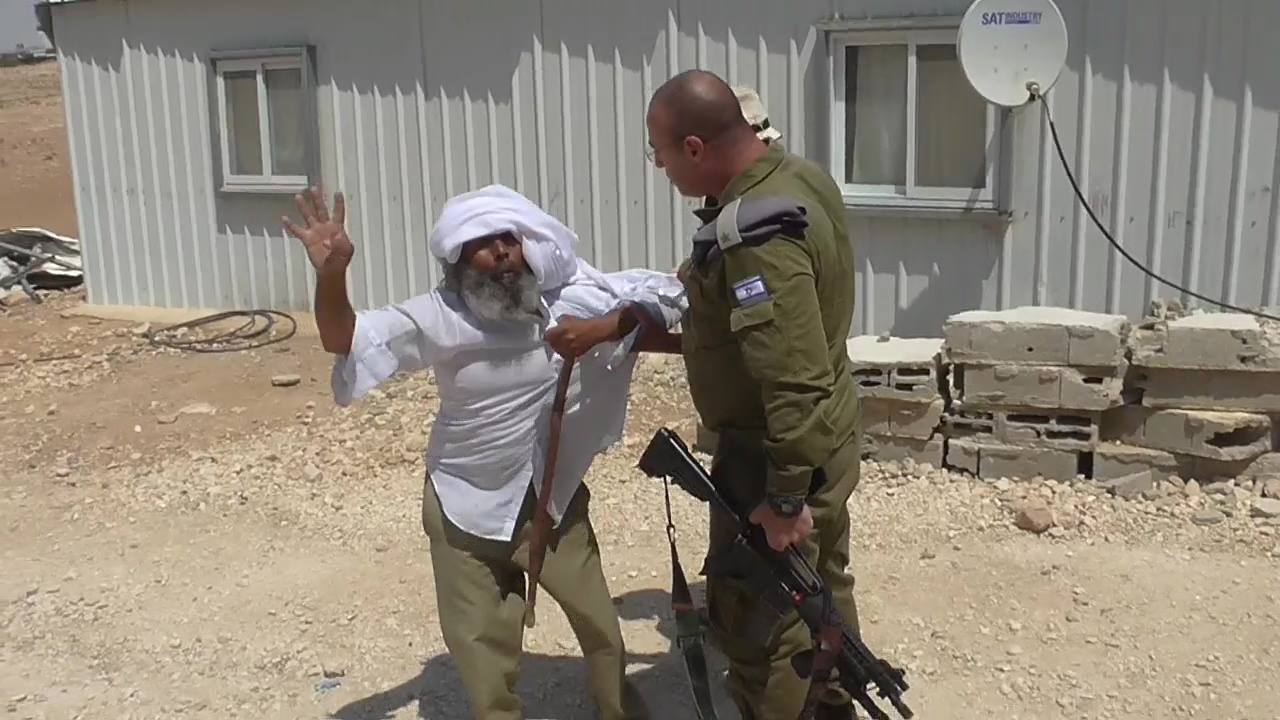-
Israeli Forces raided House in Occupied Al – Khalil
In the evening of the 20th of August at 10.30 PM the Israeli Occupation Forces entered a Palestinian house close to the illegal settlement Kiryat Arba on prayer road in northern Al-Khalil. According to the Occupation Forces, Palestinian residents threw Molotov Cocktails at the soldiers close to a near by checkpoint. This made them illegaly […]
-
Israeli forces arrest 3 children, and harass Palestinians in occupied Hebron 2nd day in a row
24th August 2017 | International Solidarity Movement, al-Khalil team | Hebron, occupied Palestine Israeli soldiers, for the second day in a row, invaded the old town in Hebron (al-Khalil), arresting four people. The occupation forces blocked the main road for 4 hours restricting the movement of the Palestinians. The Israeli forces used stun grenades to […]
-
Update: Umm Al-Kheir: soldier attacks elderly man
23rd August 2017 | International Solidarity Movement, al-Khalil-team | Umm Al-Kheir, occupied Palestine In the demolition threatened village, Umm Al-Kheir, in the south Hebron Hills, a military truck of the occupation forces arrived in the village to check buildings for potential demolitions. Suliman Eid Hathaleen, a 70-year old resident tried to stop them, but was violently […]
Action Alert An Nabi Saleh Apartheid Wall Arrests BDS Bethlehem Bil'in Cast Lead Demonstration Denial of Entry Ethnic Cleansing Farmers Gaza Global Actions Hebron House Demolition International law Israeli Army Jerusalem Live Ammunition Nablus Ni'lin Prisoner Ramallah Rubber-coated steel bullets Settlement Settlers Settler violence Tear-Gas Canister Video



